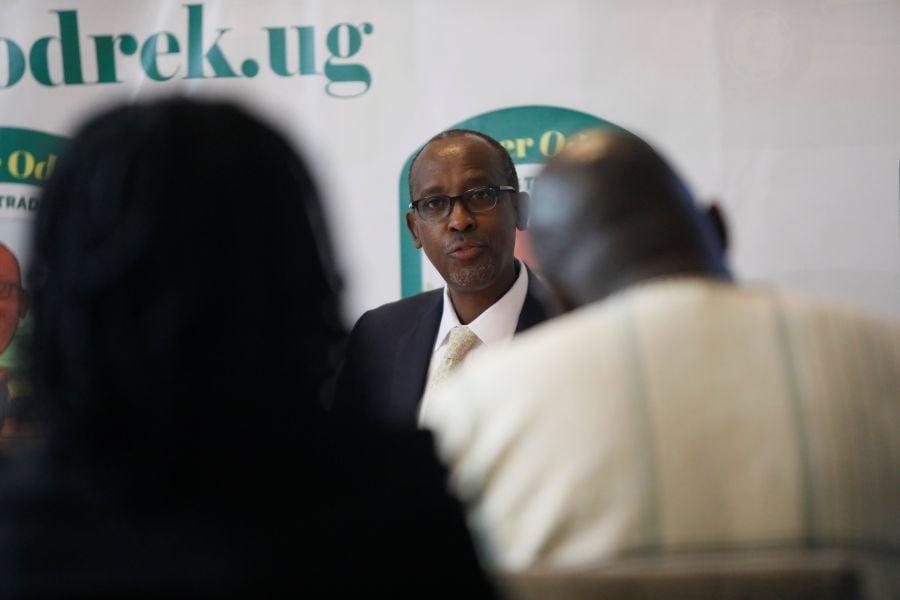Africa-Press – Uganda. Uganda has signaled readiness to enter negotiations with the United States over new proposed tariffs that threaten to affect the country’s budding processed coffee exports to the high-value North American market.
Odrek Rwabwogo, Senior Presidential Advisor and Chair of the Presidential Advisory Committee on Exports and Industrial Development (PACEID), said on Wednesday that while the government is concerned by the potential disruption, it remains confident that dialogue will prevail.
“We really think that it’s unnecessary,” Rwabwogo said. “Trade relationships are buttressed by many other forms of cooperation—security, culture—and we’ve had this with the U.S. for many, many years. So we are not worried that this is the end. We will negotiate where possible.”
Trump imposed a 15% tariff on US imports from Uganda, part of a sweeping executive order targeting 69 countries.
The proposed tariffs, recently hinted at by U.S. trade policy shifts under the Biden administration, would potentially increase the cost of Uganda’s roasted and value-added coffee exports entering the U.S. market—a sector Uganda has only recently broken into.
Rwabwogo revealed that Uganda had, for the first time in decades, successfully shipped roasted espresso-grade coffee directly into U.S. retail stores, marking a major milestone in efforts to move up the coffee value chain.
“If a kilo of Colombian roasted coffee sells at $10, we must compete not just on quality but on cost. Any additional tariff puts us at a disadvantage—especially when you factor in transportation and our limited brand visibility compared to more established exporters like Colombia.”
He further cautioned that disruptions in U.S. trade could have knock-on effects on Uganda’s entire value chain, given that most high-grade roasting equipment used in North America is sourced from U.S. companies. A trade rift, he warned, could jeopardize machinery supplies and hinder Uganda’s growth in value addition.
“If a Canadian buyer gets their roasted coffee from a U.S. supplier, and we’re caught in a tariff dispute, then our product indirectly suffers. It’s a problem for us because many of our targeted cities are in that North American neighborhood.”
Rwabwogo also noted the broader stakes: Uganda imports aircraft parts from the U.S. while exporting coffee. Disruptions in one sector could spill over into others.
Nonetheless, he expressed optimism that Uganda’s improving regional trade performance and focus on value addition would continue, with or without resolution of the U.S. tariff issue.
“Our sales in the U.S. are still relatively small, but it’s a strategic, high-value market. We won’t abandon it. We’ll continue strengthening capacity to serve alternative destinations while pursuing dialogue.”
He stressed that Uganda’s goal remains unchanged—to increase earnings by exporting processed and premium-quality goods, and reduce dependency on raw commodity exports.
“Governments come and go. Policies change. But Uganda will keep building capabilities. If we succeed in negotiations, well and good. If not, it does not mean our companies stop growing.”
For More News And Analysis About Uganda Follow Africa-Press






